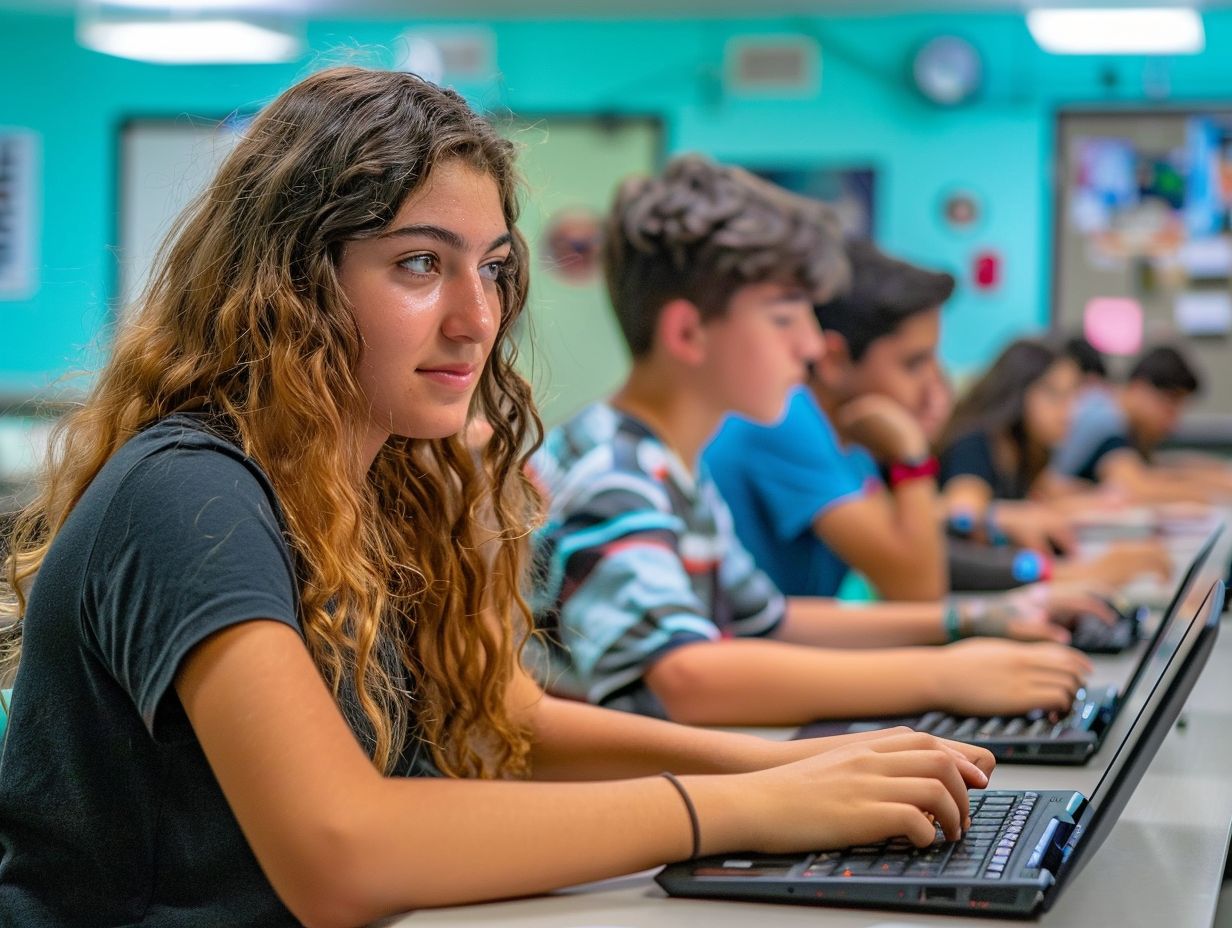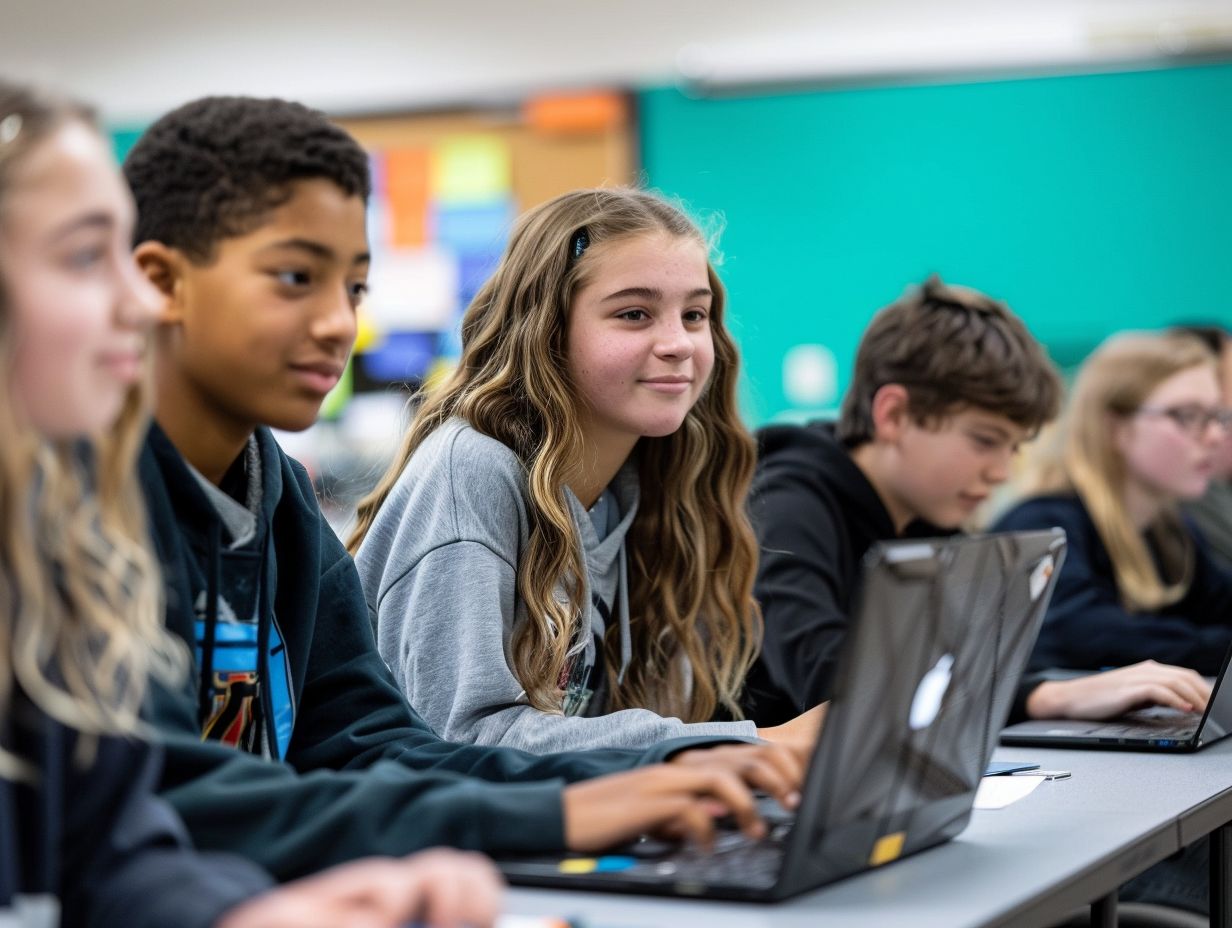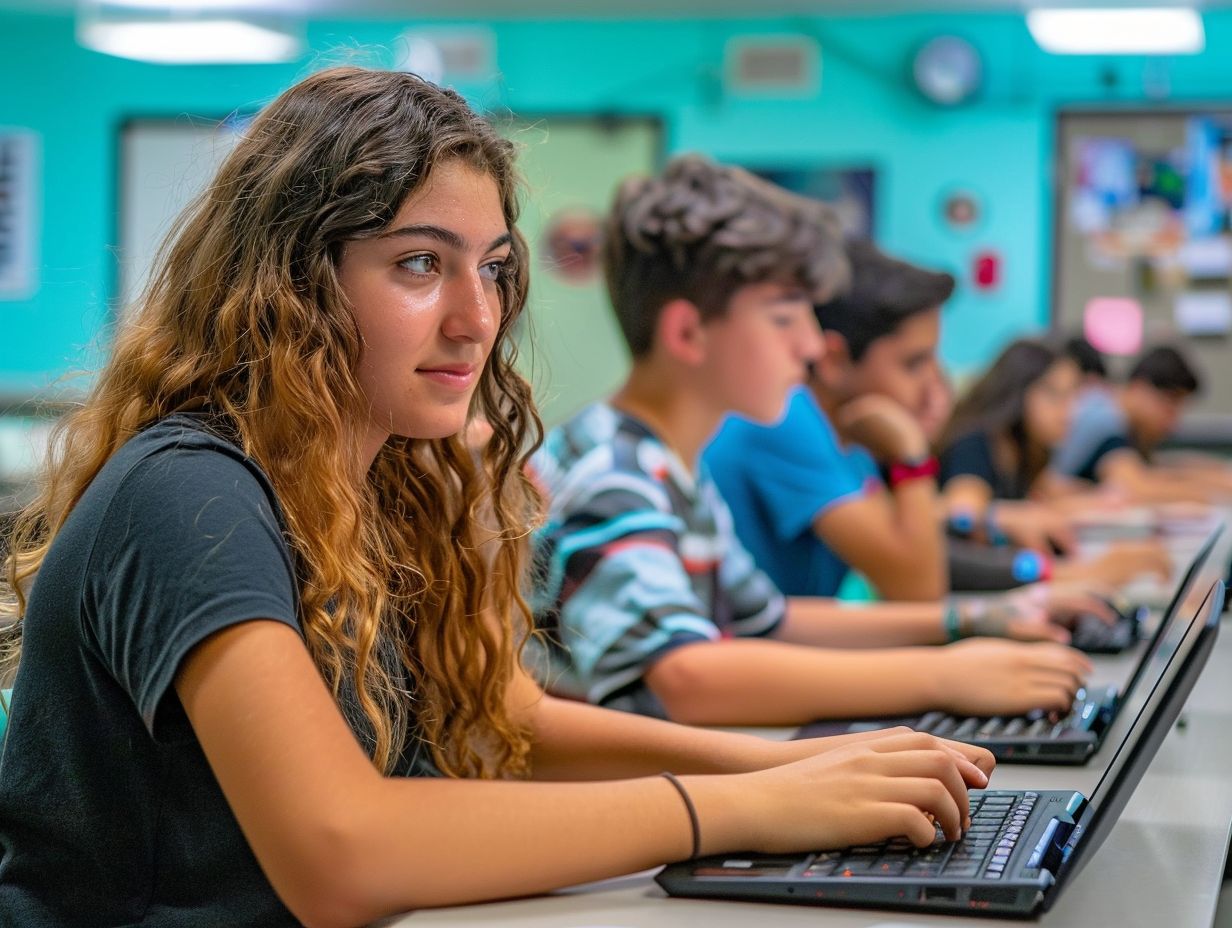In today’s rapidly evolving work landscape, the rise of the remote workforce has become a prominent trend. As more and more companies adopt flexible work arrangements, it is crucial for you, as a technical student, to be prepared for this shift.
This article explores the benefits of preparing technical students for remote work, such as increased employability and improved work-life balance. It also delves into the challenges you may face, from technical skills to communication barriers.
By integrating remote work into the curriculum and providing necessary support, we can ensure that technical students are equipped to succeed in a remote workforce. We provide valuable tips for thriving in this new work environment, including effective time management and communication strategies.
Join us on this journey to prepare technical students for the future of work.
Key Takeaways:

The Rise of Remote Workforce
The Rise of Remote Workforce has transformed traditional work environments, paving the way for a future where remote work is not just a trend but a fundamental aspect of the workplace. With the advancements in technology and the proliferation of digital and virtual workplace solutions, remote work has become a viable option for many businesses and employees alike.
This shift towards remote work has been further accelerated by the increasing emphasis on online learning and the growing recognition of the benefits it brings in terms of flexibility and productivity. As the digital landscape continues to evolve, the demand for individuals with skills relevant to remote work is also on the rise. Future jobs are increasingly likely to involve aspects of remote collaboration and digital communication, emphasizing the importance of adapting to this new era of work.
Overview of the Trend
The overview of the trend in remote work indicates a shift toward a more flexible and adaptable work environment. The rapid changes driven by COVID-19 have hastened the adoption of remote work practices, resulting in the emergence of hybrid workplace models that seamlessly integrate in-person and remote work.
This evolution in remote work trends is molding the future workforce, as companies explore innovative methods to enhance productivity and employee well-being. The impact of COVID-19 has emphasized the crucial role of technology and digital tools in enabling smooth remote collaboration. While organizations navigate these transformations, the increasing importance of hybrid workplace models is clear, offering employees enhanced flexibility while still providing opportunities for face-to-face interactions.
The Benefits of Preparing Technical Students for Remote Work
Preparing Technical Students for Remote Work offers numerous benefits, including the development of essential technical skills, fostering critical thinking abilities, and enhancing learning through project-based initiatives. By equipping you with the necessary skills and mindset for remote work, educational institutions contribute to creating a future workforce that is adaptable and proficient in digital environments.
This preparation not only enhances your ability to effectively collaborate across virtual platforms but also cultivates independence and self-discipline. When you are trained for remote work, you are exposed to real-world challenges and scenarios, which further hones your problem-solving skills and resilience. Through remote work preparation, you also practice time management and communication skills, crucial in today s professional landscape. These experiences enable you to navigate the complexities of a digital workspace with confidence and competence.
Increased Employability
The increased employability among technical students participating in remote work preparation programs is a direct result of aligning educational curriculums with the evolving needs of employers and the job market. By integrating remote work skills into the education system, you are better equipped to embark on successful careers and adapt to changing workplace dynamics.
Educational institutions play a crucial role in fostering these changes by incorporating practical remote work exercises, project-based learning, and industry collaborations. Employers are increasingly valuing candidates with remote work experience, making it imperative for you to acquire these skills early on. The evolving job market demands versatility and adaptability, qualities that remote work preparation helps you cultivate. As the demand for remote work continues to rise, students who have honed these skills through specific programs have a competitive edge in the job search process.
Flexibility and Work-Life Balance

Flexibility and Work-Life Balance are crucial aspects that technical students can gain through remote work preparation. By honing time management skills, combating procrastination, and embracing flexible work arrangements, you can achieve a harmonious balance between your professional and personal life.
This adaptability not only enhances productivity but also allows for a seamless transition from academic life to the professional world. Tackling procrastination head-on enables you to stay focused on tasks and meet deadlines effectively. Flexible work schedules provide you with the autonomy to allocate time for personal commitments while meeting work requirements. Striking this balance is essential not only for academic success but also for overall well-being and mental health. Remote work offers a unique opportunity for students to cultivate these skills and mindset early on.
Challenges of Remote Work for Technical Students
Technical students may encounter various challenges when transitioning to remote work, including the need to improve communication skills, cultivate collaboration in virtual environments, and secure access to the necessary technical skills and equipment. Successfully overcoming these challenges is crucial for students to excel in remote work settings.
One significant obstacle that technical students frequently face in remote work situations is the absence of face-to-face interaction, which can impede effective communication. Without physical cues or immediate feedback, conveying ideas and grasping others’ perspectives becomes more complex. Collaboration with team members spread across different locations demands a high degree of coordination and adaptability.
To address these challenges, students can leverage a range of communication tools such as video conferencing platforms and instant messaging applications to bridge the virtual communication gap and enhance collaboration.
Technical Skills and Equipment
Your proficiency in Technical Skills and Equipment is crucial for excelling in remote work settings. It is essential to have a strong grasp of technology, digital literacy, familiarity with tools like Microsoft Office, and the ability to adapt to emerging technologies such as robotics to navigate the digital landscape effectively.
A solid foundation in technical skills enables individuals to communicate and collaborate efficiently in virtual environments. Given the growing importance of remote work, knowing how to troubleshoot common software issues, utilize cloud-based storage solutions, and leverage automation tools are vital aspects of a successful remote work strategy.
Mastering these technical skills not only boosts productivity but also opens up new opportunities in the ever-evolving digital work environment. It is important to stay updated and continuously enhance your technical skills to thrive in remote work environments.
Communication and Collaboration
Communication and Collaboration are critical competencies for technical students engaged in remote work. Strong communication skills, adeptness in virtual workplace dynamics, leadership qualities, and cultural sensitivity are essential for effective collaboration and teamwork in remote settings.
You must have the ability to communicate clearly and concisely in a virtual environment, as it is key to avoiding misunderstandings and promoting a sense of unity among team members who may be physically distant. Demonstrating strong leadership attributes like empathy, adaptability, and trustworthiness can foster a positive team culture even across various time zones and cultural backgrounds. Embracing cultural awareness not only enhances collaboration but also promotes respect and inclusivity, contributing to a more harmonious remote work environment. Employing effective communication strategies such as active listening, regular check-ins, and setting clear expectations can significantly elevate team performance and productivity in remote work scenarios.
Preparing Technical Students for Remote Work
Preparing Technical Students for Remote Work involves taking a strategic approach that integrates training programs, customized curriculums focused on career readiness, and innovative virtual learning experiences. By providing students with the necessary tools and resources, educational institutions can enable them to thrive in remote work environments and succeed in their future careers.
Through targeted training initiatives, technical students can enhance their skills in communication, time management, and digital literacy, preparing them for the demands of remote work settings. Curriculum development is essential in equipping students with industry-specific knowledge and practical experience, ensuring they are well-prepared for the rapidly evolving demands of the digital workspace. Embracing virtual learning platforms allows students to engage in interactive simulations, collaborate with peers, and access remote mentorship opportunities, fostering a comprehensive approach to their professional development.
Integrating Remote Work into Curriculum

Integrating Remote Work into your curriculum requires a comprehensive approach that encompasses aspects of online education, leadership development, entrepreneurial courses, and project management modules. By including these components in your curriculum, educational institutions can provide students with a diverse set of skills necessary to excel in remote work environments.
Online education tools are essential in delivering a dynamic learning experience for students. They allow students to access resources, participate in virtual classrooms, and collaborate effectively with their peers.
Leadership training programs are vital for cultivating key qualities such as communication, decision-making, and adaptability. These programs prepare students to lead diverse teams in remote work environments.
Entrepreneurial programs are instrumental in promoting innovation and creativity among students. They enable students to think critically and develop entrepreneurial ventures.
Project management initiatives help in instilling organizational skills, time management, and teamwork in students. These are crucial for the successful execution of projects in virtual work environments.
Providing Resources and Support
Providing technical students embarking on remote work journeys with resources and support is essential for their success. Access to training programs, exposure to digital innovations, insights into artificial intelligence applications, and support from platforms like Quantic can enhance their preparedness for the challenges and opportunities of remote work.
Offering resources and support not only equips students with the necessary skills but also boosts their confidence in navigating the digital landscape. Training programs help them stay updated with the latest industry trends, while exposure to digital innovations sparks creativity and adaptability. Insights on artificial intelligence open doors to new possibilities and foster a deeper understanding of technology’s impact. Leveraging platforms like Quantic provides a tailored approach to learning and networking, creating a supportive environment for students to thrive in the dynamic realm of remote work.
Tips for Succeeding in a Remote Workforce
Successfully navigating a Remote Workforce requires mastery of key skills such as time management, effective communication, leadership qualities, and maintaining a healthy work-life balance. By implementing these tips, technical students can enhance their productivity, collaborate efficiently, and thrive in remote work environments.
In remote work settings, time management is crucial. Setting clear daily goals, creating schedules, and utilizing tools like calendars and time trackers can assist in organizing tasks effectively.
Developing strong communication practices involves making use of various channels such as video calls, instant messaging, and project management software to stay connected with team members and clarify objectives.
Leadership development in remote work includes inspiring and motivating team members, providing constructive feedback, and cultivating a positive work culture.
Achieving work-life balance demands setting boundaries, taking regular breaks, and allocating time for personal activities to prevent burnout and maintain well-being.
Time Management and Self-Discipline
Time Management and Self-Discipline are crucial skills for technical students adapting to remote work environments. By honing your time management skills, engaging in project-based learning approaches, and overcoming procrastination tendencies, you can boost your effectiveness and efficiency in remote work settings.
Project-based learning methodologies provide technical students with valuable hands-on experiences, enabling you to apply theoretical knowledge to practical scenarios. By incorporating real-world projects into your learning process, you can improve your problem-solving skills and gain industry-relevant insights.
Adopting effective strategies to combat procrastination, such as setting clear goals, establishing routines, and utilizing time-blocking techniques, helps you stay focused and on track. Through mindful time utilization and disciplined work habits, technical students like yourself can thrive in remote work environments, meeting project deadlines and achieving optimal performance.
Effective Communication and Collaboration
Effective Communication and Collaboration are essential elements of success for technical students in remote work environments. By refining your communication skills, nurturing collaborative workplace dynamics, and fostering creativity in virtual settings, you can establish robust professional relationships and accomplish shared objectives.
Developing proficient communication skills is crucial in remote work environments because clear and concise interactions are pivotal for ensuring smooth project coordination and effective problem-solving. Implementing collaborative strategies such as regular team check-ins, utilizing collaborative tools, and establishing transparent communication channels can strengthen team cohesion and boost productivity. Embracing workplace creativity in virtual settings ignites innovation, generates fresh ideas, and instills a sense of ownership among team members, ultimately leading to more engaging and impactful outcomes. Cultivating effective teamwork through open communication, mutual respect, and alignment on shared objectives lays a solid foundation for success in the ever-changing landscape of remote work.
Frequently Asked Questions

What is the significance of preparing technical students for a remote workforce?
Preparing technical students for a remote workforce is important as it equips them with the necessary skills and tools to succeed in a virtual work environment, which is becoming increasingly common in today’s job market.
What are some key skills that technical students need to develop for a remote workforce?
Some essential skills that technical students should develop for a remote workforce include time management, effective communication, problem solving, and the ability to work independently.
How can educators prepare technical students for a remote workforce?
Educators can prepare technical students for a remote workforce by incorporating virtual collaboration tools, providing hands-on experience with remote work platforms, and teaching effective remote communication strategies.
What are some challenges that technical students may face when transitioning to a remote workforce?
Technical students may struggle with maintaining a work-life balance, staying motivated and focused, and adapting to a different work style and culture when transitioning to a remote workforce.
What resources are available to help technical students prepare for a remote workforce?
There are various online courses, webinars, and workshops that can help technical students develop the necessary skills for a remote workforce. Additionally, career centers and job fairs often offer tips and advice for students seeking remote work opportunities.
What are the benefits of preparing technical students for a remote workforce?
Preparing technical students for a remote workforce not only increases their employability and job prospects, but it also allows for a more diverse and inclusive workforce, reduces costs for employers, and helps students gain valuable experience and skills that can be applied in various industries.

